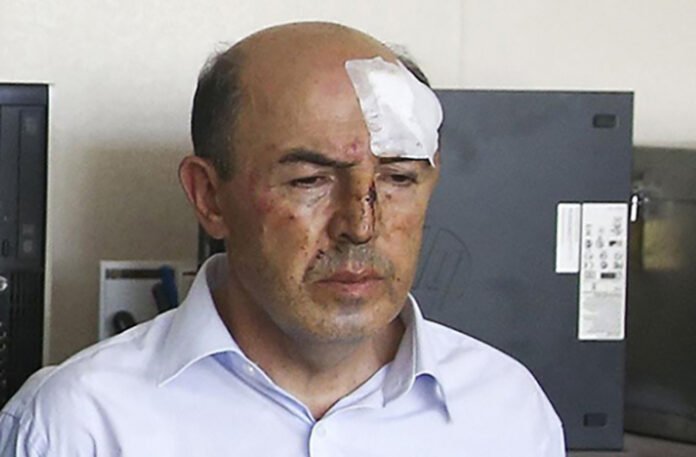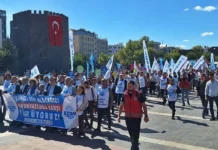A Turkish prosecutor has rejected a complaint alleging torture filed by a former lieutenant general who is serving an aggravated life sentence over a 2016 coup attempt, despite images published by the state-run Anadolu news agency showing him with visible injuries hours after his detention.
İlhan Talu, a former chief of personnel at Turkey’s General Staff, filed a complaint detailing the torture and ill-treatment he said he suffered after being detained in the aftermath of the coup attempt. The Ankara Chief Public Prosecutor’s Office, however, decided not to prosecute the police officers accused of torturing Talu during his detention.
In photos and video released by Anadolu hours after the abortive putsch, several detained generals, including Talu, appeared with visible bruises and injuries on their faces.
Talu’s lawyer, Özlem Barıner, shared details of the rejected complaint on X.
She said the prosecutor justified the decision on grounds of a “personnel shortage” and “the severity of the events of the day.” Prosecutors claimed that the traumatic findings documented in forensic medical reports were the result of “proportionate use of force” to suppress alleged resistance, claiming senior officers refused to be held in custody with lower-ranking soldiers.
Barıner said Talu was in good health before his detention and did not resist the arrest. She said Talu suffered severe physical abuse, leading to three months of blood in his urine, as noted in the official forensic report.
Turkey experienced a controversial military coup attempt on the night of July 15, 2016, which, according to many, was a false flag aimed at entrenching the authoritarian rule of President Recep Tayyip Erdoğan by rooting out dissidents and eliminating powerful actors such as the military in his desire for absolute power.
Following the failed coup, the Turkish government declared a state of emergency and carried out a massive purge of state institutions under the pretext of an anti-coup fight. Over 130,000 public servants, including 4,156 judges and prosecutors, and more than 24,000 members of the armed forces were summarily removed from their jobs for alleged membership in or relationships with “terrorist organizations” by emergency decree-laws subject to neither judicial nor parliamentary scrutiny.
In the aftermath of the abortive putsch, allegations of torture, abuse and inhumane conditions in detention centers have been a persistent concern among human rights organizations. Reports from detainees describe severe beatings, sleep deprivation, electric shock and other forms of physical and psychological abuse.
International human rights groups, including Amnesty International and Human Rights Watch, have documented numerous cases of abuse and torture. Detainees were often denied access to legal counsel and medical treatment and many reported being pressured to sign confessions under duress.
Turkey has also blocked for nine years the publication of a Council of Europe report based on a fact-finding visit between August 28 and September 6, 2016, investigating allegations of torture and ill treatment in Turkish detention facilities.















